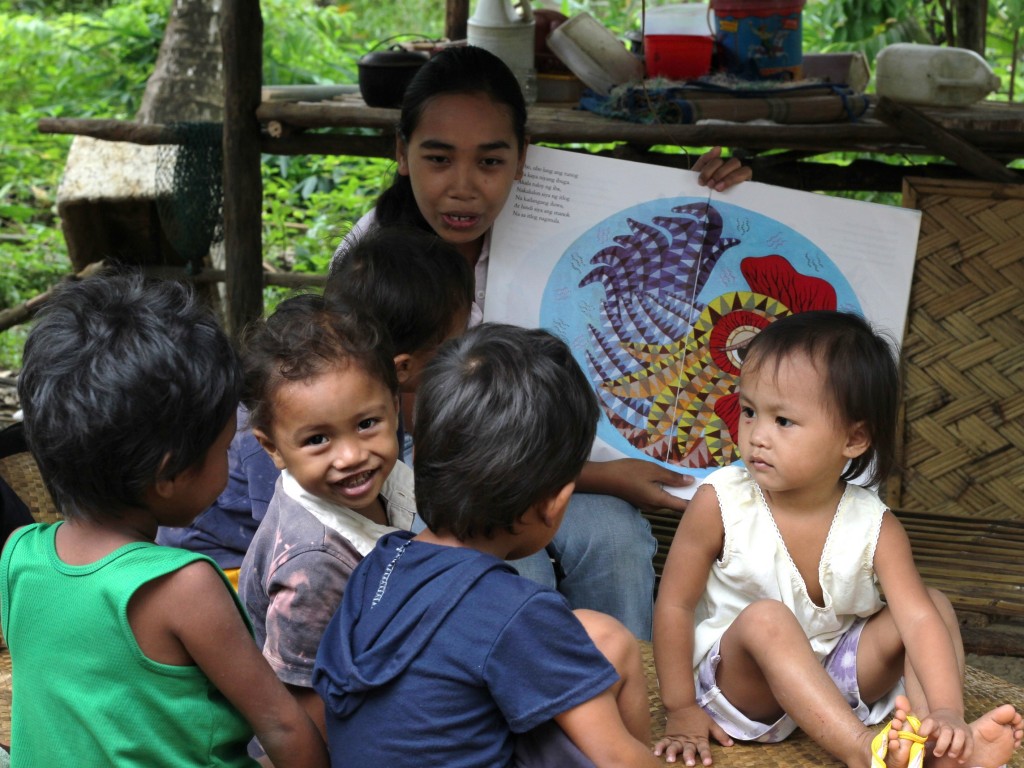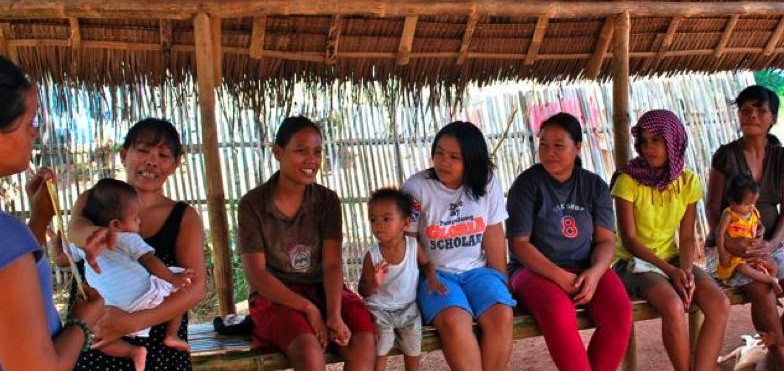IN THE MOTHERLAND: Fighting to plant the Roots of Reproductive Health in Palawan
By Laurel FantauzzoWomen here have ways of coping. They drink laundry detergent. They jump from trees, belly first. They impale themselves with probing metal rods. If they make it to a hospital, health workers may write one large word on their charts—ABORTION—and let them bleed into the mattress.
Some women try to stop the scenario sooner, before the shock and injury. They go to clinics to request the medicine that will protect them. But when health workers hear them shyly ask for birth control, they will demand to see the women’s marriage certificates.
The founders of Roots of Health do not believe that the dreadful reality for low-income women in the Philippines is an acceptable or inevitable one. Their nonprofit is a model of effective, non-judgmental nutritional and reproductive health intervention that should be repeated across the Philippines, and soon.
The women who live in the communities Roots of Health serves—Little Tondo, Pulang Lupa, and Unang Lahi—do not talk about the Philippines’ stymied Reproductive Health Bill. The passing of the RH Bill would mobilize the government to provide low-income women the education about their bodies, and birth control, that my moneyed classmates were able to get outside of the halls of my Catholic high school. The reasons leaders use against the RH Bill are predictable and infuriating. Birth control and condoms are ineffective at best, they say; the same as abortion at worst.
Teach women about sexual health, they say; provide women more medicine, they say, and women will have more impure, empty sex, and more abortions.
These arguments frustrate Ami Evangelista. She’s a FilAm who grew up in Manila and moved to the States for college at age 19. After undergrad at Wellesley, she worked as a translator for Human Rights Watch’s AIDS research in the Philippines, where she saw firsthand the disastrous results of little to no sex education in her home country. She settled in New York after earning her dual Masters of International Affairs and Public Health from Columbia University. Then, restless in her nonprofit consulting job, Ami leaped at her mother’s suggestion that they begin a nonprofit for women and children in Palawan. She relocated to Puerto Princesa in 2009 with her husband, Marcus Swanepoel. After conducting extensive interviews with local Palawan residents, corralling a high-powered board of directors, and building a local staff, Roots of Health went to work.
One of the most important acts the nonprofit fosters is conversation, in a climate where shame often silences any discussion of sex. They visit Palawan State University and encourage young women to ask questions about love, relationships, and anatomy. They provide education about condoms, and distribute free condoms, to men and women on Valentine’s Day.
“Don’t care if the bill is passed,” said Susan Evangelista, when I asked her about how the RH Bill is regarded here. “That’s what we say. Just behave as if the bill has passed.”
The women of Palawan don’t discuss the RH Bill at all. They simply ask about safe ways to prevent their pregnancies. Roots of Health does not facilitate abortions, either. It provides the education, options, and medicine residents need and request, so that the women don’t leap from trees, or ingest poison, or bleed.
I visited with Roots of Health in early July. I accompanied them on their weekly visit to Little Tondo, where residents’ organic vertical gardens are beginning to thrive near small piles of Ginebra bottles, evidence of the despair still wrought by local unemployment. Two of Roots of Health’s local Filipina employees led a workshop about child nutrition, while two more employees read Tagalog storybooks nearby to a group of small kids. Later, the mothers and children gathered for several helpings of Roots of Health’s chicken ‘malunggay’ soup.
I went to Catholic school in a moneyed suburb of Southern California. Our student handbook was clear: Abortions were grounds for dismissal. I passed religion quizzes easily, because I answered that condoms and birth control were immoral, ineffective; that calls to use them were made only by secular deceivers. I nodded in agreement that sex, outside of a heterosexual marriage, was a forbidden, empty, animal exercise. I absorbed the underlying message that if unmarried people chose to connect through sex, they deserved the disease or unwelcome pregnancies that came to them.
I saw classmates drop out quietly. I heard news later about their ended pregnancies, or their pregnancies carried to term. I felt their subsequent exile from our midst. Some classmates who stayed in school whispered to me about doctors’ visits they made with their mothers, who wanted them to have the protection of birth control throughout their teen years, the Church’s stance notwithstanding.
The stakes for my female classmates, in that moneyed suburb, were nowhere near what they are for women in Palawan now. But while every woman faces the most basic risk—carrying a child that their bodies, or their lives, simply cannot carry—some women have a higher chance of dying painful deaths, or exile from their communities. The women of the Philippines, certainly, and the women in low-income communities of Palawan, especially.
Eventually, the Evangelistas plan to turn Roots of Health over to local leaders, once their employees are trained enough to take over the nonprofit’s operations. Robel Cortezano is a 32-year-old undergrad, and mother, at Palawan State University. She’s an employee with Roots of Health now, and she chats openly with Susan Evangelista about her unplanned pregnancies. “I wasn’t educated,” she says. “My classmates say pills will gang up, sit there, and will give cancer. They will drink Tide to clear out the system after sex!”
Now Robel helps lead workshops at Palawan State University to help women discuss sexual health openly, without fear of ridicule or religious condemnation.
I joined four of Roots of Health’s Palawan-born employees in Susan Evangelista’s pickup truck back to their office in Puerto Princesa. Without prompting, done with a day of educating their neighbors, the women began to sing a raucous, joyous love song. I couldn’t help but think that Roots of Health had helped amplify their voices; that their song was, in some way, calling out to the better future they could see within reach, a future that every Filipina woman deserves.
Laurel Fantauzzo is currently living in the Philippines. If she were back home in New York City, she would most certainly be attending Roots of Health’s fundraiser
in the Lower East Side on September 15.















[…] kids. Later, the mothers and children gathered for several … … Read this article: IN THE MOTHERLAND: Fighting to plant the Roots of Reproductive … ← Pumpkin Chocolate Chip Cookies The Importance of Early Child Care by Nutrition Doctor […]
It was good reading about one’s quest to help poor Filipino kids by going back to her native Philippines and making the difference in their lives.
Michael Matthews
Nice writing. Simple yet interesting and engaging. Keep up a good work, Laurel.
[…] photo blog in response to California’s Proposition 8.” In September 2011, she wrote an article for the online magazine The FilAm (“a magazine for Filipino Americans in New York”), where she promoted the so-called RH […]